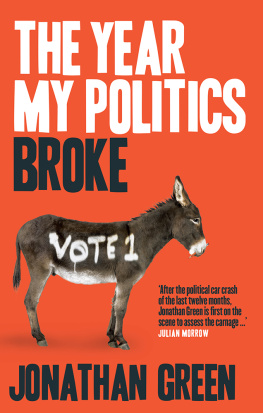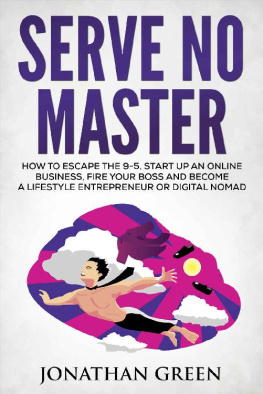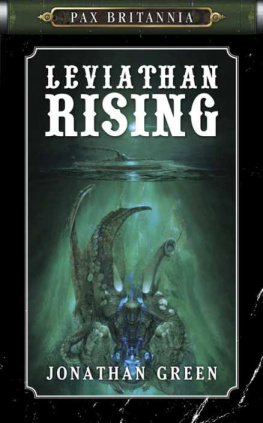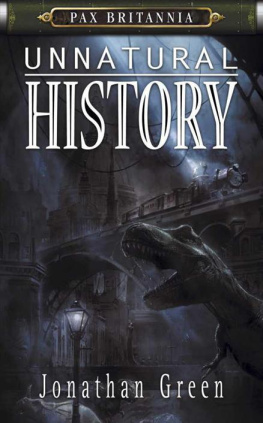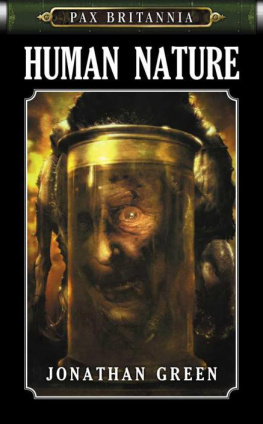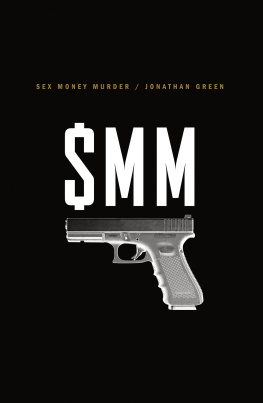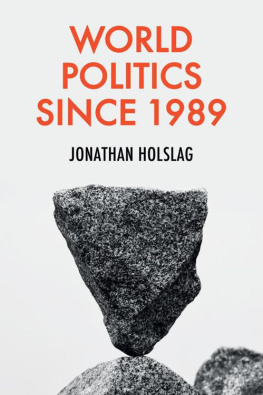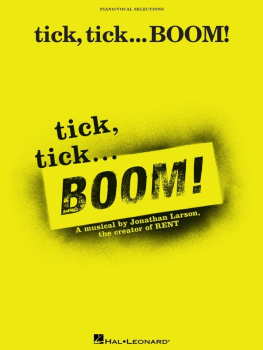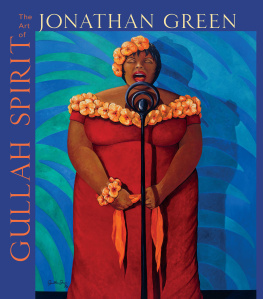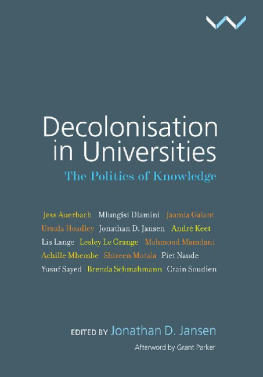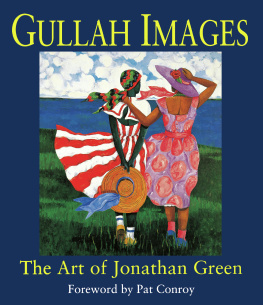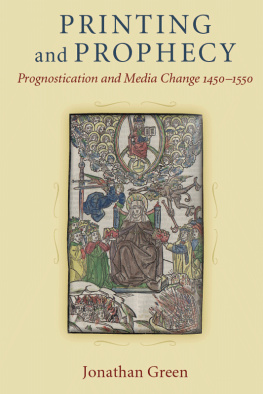THE YEAR MY POLITICS BROKE

MELBOURNE UNIVERSITY PRESS
An imprint of Melbourne University Publishing Limited
1115 Argyle Place South, Carlton, Victoria 3053, Australia
mup-info@unimelb.edu.au
www.mup.com.au
First published 2013
Text Jonathan Green, 2013
Design and typography Melbourne University Publishing Limited, 2013
This book is copyright. Apart from any use permitted under the Copyright Act 1968 and subsequent amendments, no part may be reproduced, stored in a retrieval system or transmitted by any means or process whatsoever without the prior written permission of the publishers.
Every attempt has been made to locate the copyright holders for material quoted in this book. Any person or organisation that may have been overlooked or misattributed may contact the publisher.
Cover design by Design by Committee
Typeset in Sabon 10.5pt by Cannon Typesetting
Printed in Australia by McPhersons Printing Group
National Library of Australia Cataloguing-in-Publication entry
Green, Jonathan, author.
The year my politics broke/Jonathan Green.
9780522864373 (paperback)
9780522864380 (ebook)
Australia. ParliamentElections2013.
ElectionsAustralia2013.
Political campaignsAustralia21st century.
Political candidatesAustralia21st century.
Political cultureAustralia.
Political participationAustralia.
AustraliaPolitics and government21st century.
AustraliaSocial conditions2001
324.994
This project has been assisted by the Australian Government through the Australia Council, its principal arts funding and advisory body.
For David Green
Who would have enjoyed the moment
CONTENTS
AUTHORS NOTE
THIS IS NOT a diary. Not a campaign notebook. Not a series of sketches ordered by time or theme. Its more a running reflection on the current state of our politics from the perspective of someonemewho, as a minor-league media participant, is part of the problem. But I hope there is a broader perspective here, the point of view of the concerned bystander, an Australian who might look at the challenges of our moment in time and wonder, with quite active curiosity and concern, whether the mechanisms that we trust to make the decisions we count on are really up to the job.
This is the era, simultaneously, of the wicked problem and the politics of self-serving avoidance, and thats not a fruitful combination.
Im looking for signs of hope that might promise otherwise, but recent experience suggests that a political system so refined and deliberate that it puts winning as its greatest priority, is singularly ill-equipped to make the necessary hard choices in an increasingly complex world.
Is that our system? Is that its failure?
I suspect it might be.
Carry on regardless
AT SOME POINT they refined the art of politics, whittling it down to a nub of cynical ambition couched in something that from the middle distance might pass for belief.
Show business for ugly people, thats the jokewhich is always funny as you watch our politicians perform. Funny, but also terribly true: the same obsessive drive for attention, the same deluded sense of influence and importance, except that for a politician, unlike your run-of-the-mill Home and Away starlet, the potential to do actual social goodand of course harmdoes exist. Its a confounding and confusing business.
The return of Kevin Rudd, our zombie prime ministerthats a case in point. Here is a man elected in 2007 on a wave of enthusiastic populism. But before we get carried away with tales of winning charisma and once-in-a-generation political charm, it is important to remember that it was a victory in line with those traditional sine curves of patience, fortune and weary familiarity we call the political cycle. John Howard was eleven years our leader, and that, by conventional wisdom, is the point at which we normally heave a weary sigh and vote for change. It just seems like the right thing to do. By the cycle, the ALP win of 2007 might even have been Kim Beazleys; at least that would probably be Kim Beazleys view.
Which is not to deny the street-level power of his successor, Kevin 07a small, smiling force of nature that, in first Beazley and then Howard, met suddenly moveable objects.
Ironic now when you think back on it, but the Rudd of 2007 carried with him a sense of new politics, of being a man apart from the Machiavellian machinations of his trade. All of which was true enough in part. He was aloof, a man without the normal enabling ALP credentials of factional or industrial support, a man who would be put down savagely thanks to a fatal combination of their absence, his own creeping timidity and his almost pathological incompetence, and then rise again in spite of them, on a promise that he might even remake his party. A quite astounding path, but one that for all its eccentricity is grounded in those most time-worn of political traits: deceit, ambition and ruthlessness. Rudd may have changed much, but to this point not the practice of Australian politicsa world that is increasingly entire of itself.
Isnt that the overwhelming impression of these past few years? That we elect people to power whose primary interest is simply succeeding in that democratic transaction and then doing what they must to repeat the experience. If it involves a system of belief at any point, it is a simple expedient that is either adapted to need or abandoned when surplus to the fundamental requirement of obtaining and maintaining power. Perhaps this is the true story of this period, a narrative that might explain how Rudd and Julia Gillard could come and go, how Tony Abbott might ascend almost without trace to sudden electability.
It might be a simple aberration, when by dumb, unfortunate luck we are faced with political choices that put the empty promises of personality politics ahead of the considered and complex policy prescriptions that might be better suited to the unique challenges of our moment. Because it does seem that we are in flux, with an economy hesitating on the brink of a changing and uncertain future in which it needs to do more than ship and quarry, an ecology transforming as it charges toward the brutal inevitability of global warming, and our slender hold on the arable fringes of the Australian continent already challenged by a growing population and by the demands of others from around the world who see the places new-world possibilities and would like to share them.
Our systems of information and community are moving through epochal change, change with the potential to remake the standing mechanisms of media and politics that have survived the last era of communications technology but will undoubtedly be utterly transformed by the current one.
In the midst of all of this, the reaction of our political players seems to have been to shrug at the enormity of these tasks and challenges and focus instead on what might be achieved on the smaller, more containable canvas of pure, unattached politics. They need us for our votes and will twist reality and perception to acquire them, but they look unlikely to give us more of the leadership, thought and challenging vision that should be ours by right in return.



